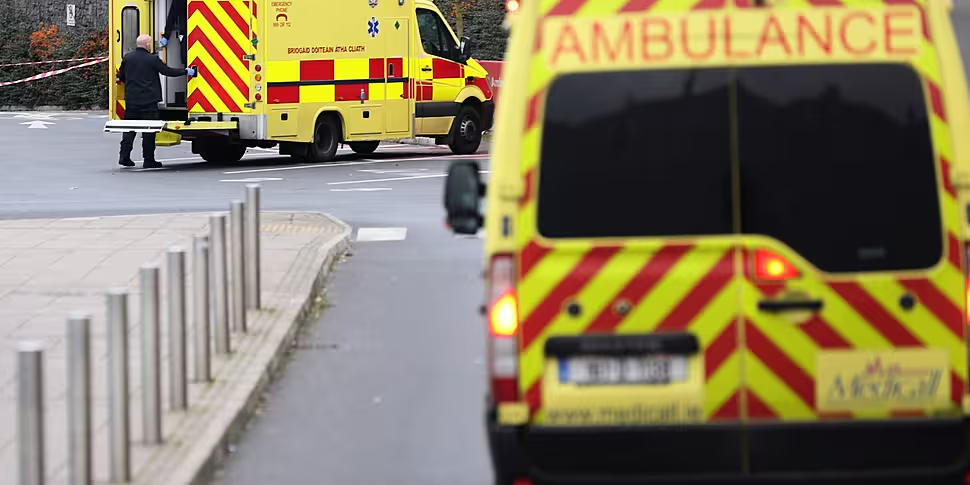Some paramedics are at 'breaking point' as the the National Ambulance Service (NAS) struggles to keep up with the overcrowding crisis.
An additional 2000 staff members as well as 120 new ambulances would be needed to keep up with demand.
Record numbers of people have been left waiting on trolleys in Irish hospitals this week.
Health Minister Stephen Donnelly has assured that conditions will improve, while nurses consider whether they will take industrial action over staffing levels.
Services Industrial Professional and Technical Union (SIPTU) representatives have raised concerns about the challenges facing its members employed in the ambulance service due to a sharp increase in patient numbers.
'Burnout'
SIPTU Sector Organiser, Ted Kenny, said: "The increased numbers attending Accident and Emergency Departments across the country has severely impacted turn-around times, with crews having to wait hours on end to hand over their patients."
Some staff are now being asked to work additional hours, which they say they've already been doing and has caused "burnout" in some cases.
The Independent Review of Roles and Responsibilities Report which was jointly commissioned by the NAS, SIPTU and the HSE in 2018 made several recommendations to address recruitment and retention issues within the service.
"To date, the recommendations of the report has not been implemented", Mr Kenny said.
“An appropriately staffed and funded NAS that can retain its dedicated workforce, would be of huge benefit to the communities it serves as well as the acute hospital sector which has seen a huge increase in activity in recent weeks."
SIPTU is calling on Minister Donnelly to "intervene" and get the recommendations implemented "as a matter of urgency".
Supply
A former HSE chief is warning that the overcrowding crisis is not something new, despite its worsening in recent weeks.
Tony O'Brien, the former Director General of the HSE, told The Anton Savage Show that nurses have been running 'trolley checks' for nearly two decades and there's never been a time when there were enough beds available.
"Surely you can moderate the number of hospital beds you need by providing other services and there has been movement in that direction", he said.
"But the fundamental thing is that there is not enough capacity and waiting lists for home support... delays in getting people into nursing homes... and then we have people who simply need to be on hospital beds who in total exceed the number of hospital beds available."
He says the so-called winter-crisis has now evolved into an all year around event.
"Government Ministers are very quick to say, 'well, we've put this extra money in here and this extra money in there", he said.
"But has it been invested in a way, and have decisions been made in a way that enable these key problems of waiting lists and emergency departments to be solved?"
"The evidence is obviously no."
Main image shows an ambulance outside the Mater Hospital in Dublin. Picture by: Sasko Lazarov/RollingNews.ie









